Frank W. Albaugh
KIA Lorraine Campaign
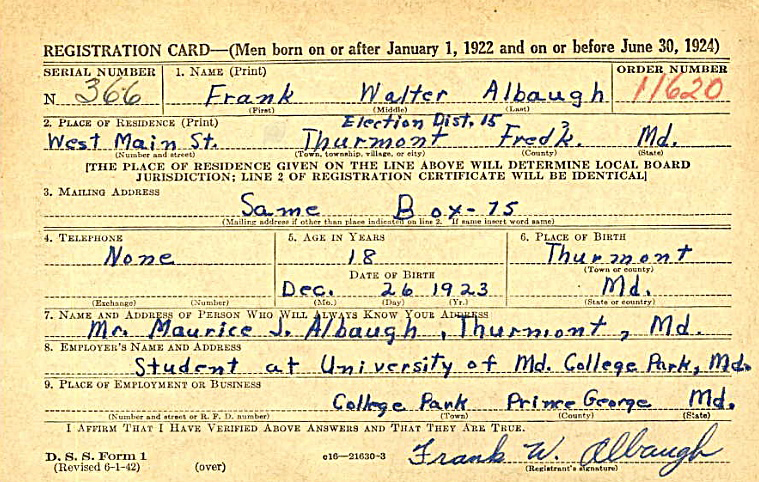
Frank W. Albaugh was born on December 26, 1923, in Thurmont, to Maurice, World War I Veteran, and wife, Margaret Albaugh. He and his parents’ address was given in the 1940 Census as simply being “Main Street,” Thurmont; also seen elsewhere as having been “31 West Main Street.”
Albaugh’s father’s place of employment was stated as having been Woodsboro Savings Bank, where he worked as a banker.
The 1940 Census also stated that Albaugh had a younger sister, Mary C Albaugh, who was 11 years old at the time of the census, and Albaugh was 16 years old.
Albaugh was a graduate of Thurmont High School, and at age 18, he registered for the draft on June 30, 1942. At that time, he had already been enrolled in the University of Maryland and had been attending classes there for two years when he entered into the military service on February 12, 1943, at 20 years of age.
His statistics at the time of his enlistment were recorded as his having been 5’8” in height and weighing 193 pounds, with brown hair and eyes and a “ruddy” complexion.
Albaugh enlisted as a private. He had achieved the rank of staff sergeant before meeting his untimely death on the killing fields of France in 1944.
Albaugh was dispatched to Europe as a member of the Army’s 137th Infantry Regiment, 35th Infantry Division, which landed on Ohama Beach during D-Day operation, deploying on July 7 through July 9.
As the 137th Infantry Regiment pushed through France in pursuit of a retreating German Army, Albaugh was wounded by enemy fire in August 1944, in which he was “slightly wounded,” treated, and was then permitted to “immediately” return to his unit, according to the August 15, 1944, edition of The (Frederick) News.
The newspaper also noted that Albaugh was issued a Purple Heart for his wounding, which he had subsequently sent home to his parents. The (Hagerstown) Morning Herald more specifically reported on August 16 that Albaugh had “suffered a slight flesh wound in one leg.”
Fast-forwarding to the engagement that ultimately cost Albaugh his life on the evening of September 9, 1944. The 35th Infantry Division was ordered to assail the German line on September 11, in the area of the Moselle River, and to capture the high ground west of the Moselle River, southeast of Nancy, France, according to coulthart.com.
The action was part of the Lorraine Campaign, which historians have described as “one of the most sensational campaigns in the annals of American military history,” and the campaign against the Germans was launched as the result of allied military having discovered “top-secret interceptions known as Ultra revealed that the Franco-German border was virtually undefended and would remain so until mid-September,” according to The Lorraine Campaign: An Overview, September-December 1944, by Dr. Christopher R. Gabel.
On September 11, the 137th Infantry Regiment was directed to attempt to cross the Moselle River near Crevechamps.
Describing the German defenses, which the 137th had faced, coulthart.com wrote on that website that, “The crossing proved difficult, as the Germans had blown all bridges across the Moselle from Flavigny south, and they held strong positions on the east side of the river, with machine gun emplacements on the steep bluffs overlooking the river, and artillery positions to the rear. The canal running parallel to the river’s west bank was an added barrier… ”
It was on September 12 that Staff Sergeant Frank W. Albaugh fell mortally wounded by enemy fire. Marylanders as a whole did not learn of the death of Albaugh until November 8, 1944, when The (Baltimore) Sun published a story, headlined “20 Maryland Men Killed in (European) War Action,” in which Staff Sergeant Albaugh was cited as having been one of those killed in action.
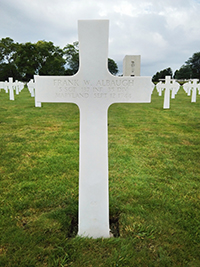
Albaugh’s mortal remains were never brought home, and he is still interred in the Lorraine American Cemetery and Memorial, Saint-Avold, Departement de la Moselle, Lorraine, France.

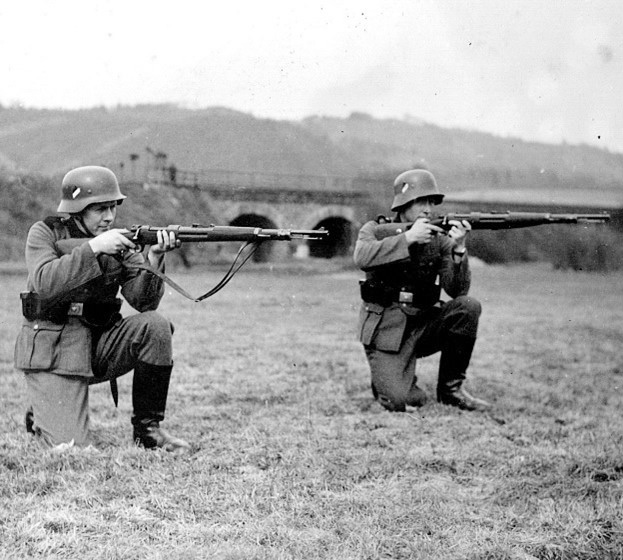
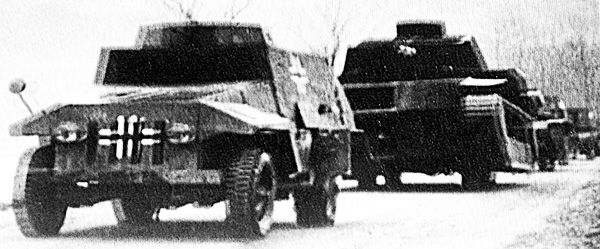
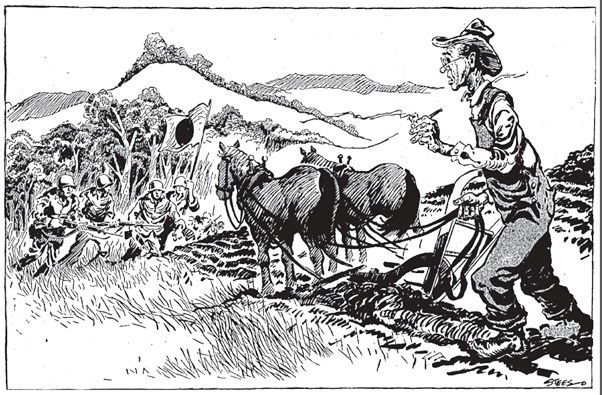
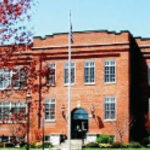
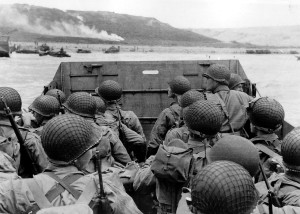 Donald Lewis stood crammed among a group of friends and fellow soldiers, trying not to lose his balance. The landing craft they were on was pushing toward its destination on Omaha Beach at Normandy, France. A strong current threatened to pull them away from their destination.
Donald Lewis stood crammed among a group of friends and fellow soldiers, trying not to lose his balance. The landing craft they were on was pushing toward its destination on Omaha Beach at Normandy, France. A strong current threatened to pull them away from their destination.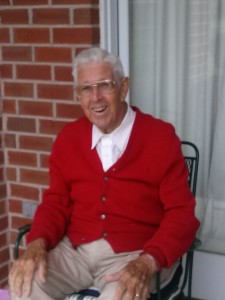 Lewis also had a political career. He served two terms as Mayor of Thurmont and one term as a Frederick County Commissioner. He said a group of people tried to talk him into running for governor, but he turned them down, saying, “I’m too honest for that.”
Lewis also had a political career. He served two terms as Mayor of Thurmont and one term as a Frederick County Commissioner. He said a group of people tried to talk him into running for governor, but he turned them down, saying, “I’m too honest for that.”